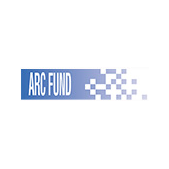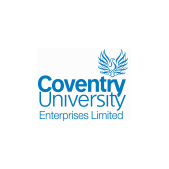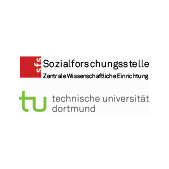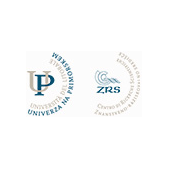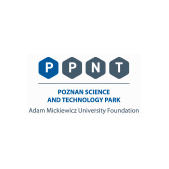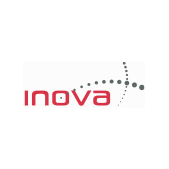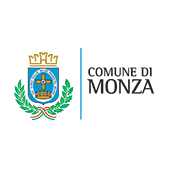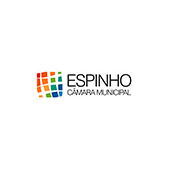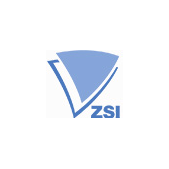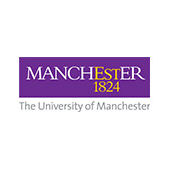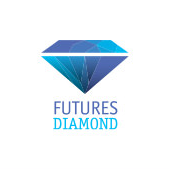Keynotes - Day 1
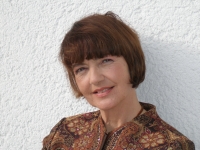 Prof. Lučka KAJFEZ BOGATAJ is the Head of the Centre for Agrometeorology and Professor of climatology at University of Ljubljana. Her current research includes climate change scenarios and impacts on ecosystems and human wellbeing. In 2008 she was elected Vice-chair of Intergovernmental Panel on Climate Change after participating in its work since 2002. She served as Vice-chair of the Working Group 2 Fourth Assessment of the IPCC and was one of the review editors of IPCC Fifth Assessment AR5. She has participated in dozens of outreach events related to the IPCC work. She was also a member of the Global Climate Observation System (GCOS) Steering Committee at World Meteorological Organisation acting as a link between GCOS and IPCC, and is a member of the GWP (Global Water Partnership) Steering Committee. In 2016 she also became a member of UNESCO Ad Hoc Expert group for the declaration on the ethical principles in relation to climate change. In 2007 she was one of the awardees of the shared Nobel Peace Prize. Professor Kajfez Bogataj has also been invited to many national and international conferences and TV programs to report, as an expert, about climate change, its effects on the environment, sustainable development and social justice issues.
Prof. Lučka KAJFEZ BOGATAJ is the Head of the Centre for Agrometeorology and Professor of climatology at University of Ljubljana. Her current research includes climate change scenarios and impacts on ecosystems and human wellbeing. In 2008 she was elected Vice-chair of Intergovernmental Panel on Climate Change after participating in its work since 2002. She served as Vice-chair of the Working Group 2 Fourth Assessment of the IPCC and was one of the review editors of IPCC Fifth Assessment AR5. She has participated in dozens of outreach events related to the IPCC work. She was also a member of the Global Climate Observation System (GCOS) Steering Committee at World Meteorological Organisation acting as a link between GCOS and IPCC, and is a member of the GWP (Global Water Partnership) Steering Committee. In 2016 she also became a member of UNESCO Ad Hoc Expert group for the declaration on the ethical principles in relation to climate change. In 2007 she was one of the awardees of the shared Nobel Peace Prize. Professor Kajfez Bogataj has also been invited to many national and international conferences and TV programs to report, as an expert, about climate change, its effects on the environment, sustainable development and social justice issues.
 Martin HYNES is President of the European Science Foundation, the parent organization of Science Connect. Prior to this he served as Chief Executive of the ESF from 2012 – 2016. He was formerly Director of The Irish Research Council for Science, Engineering and Technology (IRCSET) and in this role he implemented a number of innovative national funding schemes with a special focus on early career researchers. He devised special incentives for engaging young researchers with enterprise across public and private sectors and won significant Marie-Curie co-funding for these programmes. He was also the Programme Committee member for Science in Society actions and in that role encouraged the uptake in Ireland of related actions such as the GenSet initiative.
Martin HYNES is President of the European Science Foundation, the parent organization of Science Connect. Prior to this he served as Chief Executive of the ESF from 2012 – 2016. He was formerly Director of The Irish Research Council for Science, Engineering and Technology (IRCSET) and in this role he implemented a number of innovative national funding schemes with a special focus on early career researchers. He devised special incentives for engaging young researchers with enterprise across public and private sectors and won significant Marie-Curie co-funding for these programmes. He was also the Programme Committee member for Science in Society actions and in that role encouraged the uptake in Ireland of related actions such as the GenSet initiative.
Keynote – Day 2
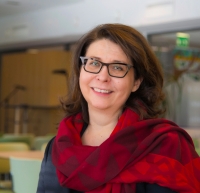 Riitta MAIJALA (DVM, PhD, Adj. Professor, Special.vet in contagious animal diseases) Vice President for Research at the Academy of Finland; worked before as the Executive Director of Thematic Research Funding at the Academy. Previously she was Director of Science Policy at the Finnish Ministry of Education, Science and Culture. Before, she has worked as researcher, lecturer, professor and at different leading positions in scientific and decision making organizations in Finland and in the EU.
Riitta MAIJALA (DVM, PhD, Adj. Professor, Special.vet in contagious animal diseases) Vice President for Research at the Academy of Finland; worked before as the Executive Director of Thematic Research Funding at the Academy. Previously she was Director of Science Policy at the Finnish Ministry of Education, Science and Culture. Before, she has worked as researcher, lecturer, professor and at different leading positions in scientific and decision making organizations in Finland and in the EU.
Speakers
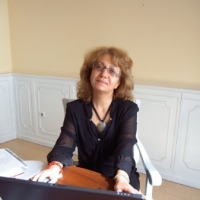 Zoya DAMIANOVA is the coordinator of the FP7-funded "CASI - Public Participation in Developing a Common Framework for Assessment and Management of Sustainable Innovation" project, leading a European consortium of 19 partners across 12 EU member states. She has been working with the Applied Research and Communications Fund (Bulgaria) since 1996. She has directly coordinated or contributed in an expert capacity to more than 80 projects during her tenure with ARC Fund. Her current research focus is on: RRI - public engagement and gender issues in research and innovation; climate action, environment, resource efficiency and raw materials, and sustainable innovation. Since 2001 she has been involved in a number of foresight studies. Zoya has been a member of several expert groups, established by DG Research and Innovation, among which are the 3rd Foresight Working Group at the EU Standing Committee on Agricultural Research (SCAR FEG3), May 2010 - March 2011 and the International STI Cooperation Expert Group, DG Research and Innovation, Jan - Sept 2012, and an expert group at DG Research and Innovation, tasked with identifying cross-sectoral research priorities at the junction of health, environment and bioeconomy (2014-2015).
Zoya DAMIANOVA is the coordinator of the FP7-funded "CASI - Public Participation in Developing a Common Framework for Assessment and Management of Sustainable Innovation" project, leading a European consortium of 19 partners across 12 EU member states. She has been working with the Applied Research and Communications Fund (Bulgaria) since 1996. She has directly coordinated or contributed in an expert capacity to more than 80 projects during her tenure with ARC Fund. Her current research focus is on: RRI - public engagement and gender issues in research and innovation; climate action, environment, resource efficiency and raw materials, and sustainable innovation. Since 2001 she has been involved in a number of foresight studies. Zoya has been a member of several expert groups, established by DG Research and Innovation, among which are the 3rd Foresight Working Group at the EU Standing Committee on Agricultural Research (SCAR FEG3), May 2010 - March 2011 and the International STI Cooperation Expert Group, DG Research and Innovation, Jan - Sept 2012, and an expert group at DG Research and Innovation, tasked with identifying cross-sectoral research priorities at the junction of health, environment and bioeconomy (2014-2015).
Dr., Adjunct Professor, MIKKO RASK is the coordinator of the Public Engagement Innovations for Horizon 2020 (PE2020) project. He works as Principal Investigator at the Consumer Society Research Centre, at the University of Helsinki, Finland. He has close to 20 years experience of national and international projects on public engagement, deliberative governance, technology assessment, foresight, research, innovation and environmental policy, and he has actively published on these issues. He is the co-founder of Finnish Institute for Deliberative Democracy.
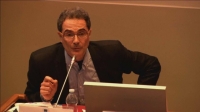 Giuseppe BORSALINO is a Policy Officer at DG RTD. He is with the Unit on Public and multi-stackeholder engagement in Research and Innovation. He works on the conception, development, implementation, monitoring and assessment of policies, strategies, actions, and initiatives in relation to the further development of the European Research Area. He is responsible for the area of the engagement of society (notably citizens and civil society organisations) in Responsible Research and Innovation (RRI). He also follows files on global/EU governance of science and echnology with a view to promoting citizenship and ensuring fundamental rights. Mr. Borsalino is the policy officer of the CASI Project, "Public Participation in Developing a Common Framework for Assessment and Management of Sustainable Innovation". Giuseppe has more than 20 years of experience in research and innovation policy and as project officer at national and European level. His experience ranges from international cooperation to environmental protection, human resources management and finally science and society. His background is in environmental protection and land planning.
Giuseppe BORSALINO is a Policy Officer at DG RTD. He is with the Unit on Public and multi-stackeholder engagement in Research and Innovation. He works on the conception, development, implementation, monitoring and assessment of policies, strategies, actions, and initiatives in relation to the further development of the European Research Area. He is responsible for the area of the engagement of society (notably citizens and civil society organisations) in Responsible Research and Innovation (RRI). He also follows files on global/EU governance of science and echnology with a view to promoting citizenship and ensuring fundamental rights. Mr. Borsalino is the policy officer of the CASI Project, "Public Participation in Developing a Common Framework for Assessment and Management of Sustainable Innovation". Giuseppe has more than 20 years of experience in research and innovation policy and as project officer at national and European level. His experience ranges from international cooperation to environmental protection, human resources management and finally science and society. His background is in environmental protection and land planning.
Markku MARKKULA was elected President of the European Committee of the Regions (CoR) in February 2015 for a two and a half year term of office. Since joining the CoR in 2010 he has held several influential positions such as the first Vice-Chair of the CoR's EPP Group and Chair of the CoR's EPP Task Force on Europe 2020. He was the CoR's rapporteur in the field of innovation for subjects including: "The digital agenda for Europe", "The role of local and regional authorities in achieving the objectives of the Europe 2020 strategy", "Enhancing and focusing EU international cooperation in research and innovation", "Horizon 2020", "Better governance for the single market", "Closing the innovation divide", "Creation of high-tech start-up ecosystems", and "The industrial policy package". He has also been a member of several High Level Expert Groups, such as the EU Smart Specialisation Mirror Group.
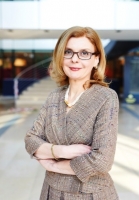 Dr DRAGHIA-AKLI is Deputy Director-General for Research & Innovation at the European Commission, responsible for the Research Programmes. She serves as the Commission representative in the Governing Boards of most Joint Technology Initiatives of the EU with different industrial sectors. Dr Draghia-Akli joined the European Commission as Director for Health Research in DG RTD in 2009. She has contributed considerably during these past years to the successes of the 'Health' Programme. She holds a MD degree and a PhD degree in human genetics from the University Carol Davilla, Romania and has participated in a fellowship programme in Genetics and Metabolic Pathology Department in "René Descartes" University in France, and a post-doctoral training in molecular biology at Baylor College of Medicine, USA. Before joining the Commission, Ruxandra worked in biotechnology companies, as Vice-President managing research programmes in the area of gene therapy and DNA vaccination.
Dr DRAGHIA-AKLI is Deputy Director-General for Research & Innovation at the European Commission, responsible for the Research Programmes. She serves as the Commission representative in the Governing Boards of most Joint Technology Initiatives of the EU with different industrial sectors. Dr Draghia-Akli joined the European Commission as Director for Health Research in DG RTD in 2009. She has contributed considerably during these past years to the successes of the 'Health' Programme. She holds a MD degree and a PhD degree in human genetics from the University Carol Davilla, Romania and has participated in a fellowship programme in Genetics and Metabolic Pathology Department in "René Descartes" University in France, and a post-doctoral training in molecular biology at Baylor College of Medicine, USA. Before joining the Commission, Ruxandra worked in biotechnology companies, as Vice-President managing research programmes in the area of gene therapy and DNA vaccination.
 Dr. Rafael POPPER is Principal Scientist in Foresight, Organizational Dynamics and Systemic Change at VTT, and Research Fellow at the Manchester Institute of Innovation Research of the University of Manchester, where he completed his PhD on 21st Century Foresight. He is also Innovation Director and CEO of Futures Diamond in Czech Republic; Director of iKnow - The Innovation, Foresight and Horizon Scanning System; Director of the Summer/Winter Schools of the International Foresight Academy (IFA); and Leader of the Mapping activities of the European Foresight Platform (EFP). His main areas of work include: ‘foresight’ as an instrument of policy, the development of foresight and horizon scanning methodology, the design of forward-looking activities and their evaluation (with a focus on European and Latin American innovation policies).
Dr. Rafael POPPER is Principal Scientist in Foresight, Organizational Dynamics and Systemic Change at VTT, and Research Fellow at the Manchester Institute of Innovation Research of the University of Manchester, where he completed his PhD on 21st Century Foresight. He is also Innovation Director and CEO of Futures Diamond in Czech Republic; Director of iKnow - The Innovation, Foresight and Horizon Scanning System; Director of the Summer/Winter Schools of the International Foresight Academy (IFA); and Leader of the Mapping activities of the European Foresight Platform (EFP). His main areas of work include: ‘foresight’ as an instrument of policy, the development of foresight and horizon scanning methodology, the design of forward-looking activities and their evaluation (with a focus on European and Latin American innovation policies).
Dr. Guillermo VELASCO holds a PhD by the University of Manchester (MIoIR) in the area of Foresight and Innovation. He also has MPhil in Economics and Innovation Management (EU-SPRI) and BEng in Industrial Organization from the Technical University of Madrid. His research interests are related to the generation and evaluation of policy advice with future-based instruments. He has developed action research and advice discourse analysis on foresight projects for informing European Research Area policies, and now contributes to the design of a new sustainable innovation CASI framework. He has also been involved in Horizon scanning activities for the UK National Health system on health emerging technologies and future models of care. He has experience, as Director of Innovation, in product innovation, IPR management, and design thinking. He has also been Director of Organization in multinationals from US, Spain and Sweden. He currently combines his research activity with Master Executive lecturing.
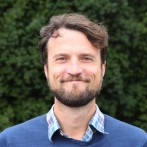 Mr. Bjørn BEDSTED, MA Social Anthropology, is Deputy Director of the Danish Board of Technology. He has led numerous technology assessment projects and is an expert in the design and implementation of methods for public engagement. He is also the global coordinator of the World Wide Views global citizen consultations and lately coordinated “World Wide on Climate and Energy”, engaging 10,000 citizens in 76 countries in deliberations about decisions to be made at COP21 in Paris.
Mr. Bjørn BEDSTED, MA Social Anthropology, is Deputy Director of the Danish Board of Technology. He has led numerous technology assessment projects and is an expert in the design and implementation of methods for public engagement. He is also the global coordinator of the World Wide Views global citizen consultations and lately coordinated “World Wide on Climate and Energy”, engaging 10,000 citizens in 76 countries in deliberations about decisions to be made at COP21 in Paris.
Dr. Petteri REPO works as a University Researcher at the Consumer Society Research Centre at the University of Helsinki. He has lead research groups focusing on living environments and innovations which have addressed topics relating to user-oriented technology assessment and user innovations for a sustainable knowledge society. He holds a PhD (Economics) from the Swedish School of Economics and Business Administration in Finland and is Adjunct Professor (Docent) at the Aalto University School of Business. He has published research on consumer policy and foresight, use of interactive services and user participation in product development. He has also co-edited a book on the domestication of new technologies.
Luciano d’ANDREA, sociologist, has been working on issues at the cross roads of social dynamics, economics and technological transformation, with special reference to science-society relations. He has worked as a senior research consultant in developing and emerging countries, especially in Africa. He has been involved with different EC-funded projects including SS-ERC (on the socialisation of scientific and technological research), BESSE (on the knowledge brokerage for an environmentally sustainable sanitation), CONSENT (on privacy protection in user-generated content services) and PE2020 (on innovative public engagement with science and technology).
Ville KAIRAMO is the Head of Demola Network. Demola is an award-winning co-creation platform for businesses and public sector, talented students and universities. Demola works internationally through its Demola centers around the world with more than 600 company and 50 strategic university partners. Previously Ville has been running national start-up incubation network and co-founded an innovation center in Finland. His work has been recognized with Baltic Sea Region Innovation award and Nokia Foundation award for achievements in facilitating university, industry and regional innovation cooperation.
Timo AARREVAARA is a Professor of Public Management at the University of Lapland, and has professional experience in public administration as well as in research and teaching. He is a co-editor of Springer’s The Changing Academy Series and author or co-author of several papers and book chapters.
Kirsi PULKKINEN is a doctoral researcher at the University of Lapland. In addition to the PE202 project, she works in a Nordic FINNUT PERFECT project (http://www.uia.no/om-uia/fakultet/fakultet-for-samfunnsvitenskap/institutt-for-statsvitenskap-og-ledelsesfag/effects-of-changes-in-leadership-and-management-structures-in-nordic-higher-education) that studies the performance effects of changes in leadership and management structures in Nordic Higher Education. Her doctoral research focuses on evidence-based policy making and knowledge transferring interaction between university researchers and ministry-level public policy makers. Previously she worked as an expert of higher education cooperation and advisor on civil society collaboration and advocacy at the Ministry for Foreign Affairs Finland.
Dr. Tanja SUNI has a background in land-atmosphere interactions. She received her PhD in environmental physics at the University of Helsinki in 2004 and worked as a post-doc in the Marine and Atmospheric Research group of CSIRO in Canberra, Australia, in 2005-2007. In 2011-2015, she worked as the Executive Officer of the Future Earth core project iLEAPS (Integrated Land Ecosystem – Atmosphere Processes Study). Since 2014, she has acted as Secretary General of the Finnish national committee for Future Earth, Future Earth Finland, and Executive Director of the European Alliance, a network of European national committees under Future Earth. Dr Suni’s work aims at providing solutions for sustainable development through science. To produce useful sustainability solutions, research needs to be co-designed with the end-users and other interested parties (stakeholders) from the start. Project should also experiment with innovative participatory methods. Future Earth Finland helps scientists and the users of research come together and identify the pressing questions of global change. The organization creates spaces for interaction between scientists and stakeholders to advance mutual learning and understanding - and new collaborative projects on global change issues.
Dr. Jussi VAUHKONEN will speak about the Strategic Research Funding in Finland and how the Academy of Finland evaluates societal interaction and relevance of research proposals. Read more about Strategic Research Funding: http://www.aka.fi/en/strategic-research-funding/
Maija SIROLA (M.Soc.Sc.) has a Master’s Degree in Communications from the University of Helsinki and specialises in strategic stakeholder communications. Maija is the Communications Manager of BONUS, the joint Baltic Sea research and development programme www.bonusportal.org. BONUS produces sustainable solutions through research and innovations in support of ecosystem based management and blue growth. It is funded by the EU member states around the Baltic Sea and the EU. In 2014, BONUS was chosen as one of the PE2020 project’s pilots and the BONUS young scientists’ blogging initiative was selected as its real-time case study.
Suzanne de CHEVEIGNÉ is senior researcher (directrice de recherche) emeritus with the Centre National de la Recherche Scientifique (CNRS) and works in the Centre Norbert Elias in Marseilles, France. She has also been a Visiting Senior Research Fellow with the London School of Economics. She carries out research on public problems in the areas of science, technology and the environment, with particular attention to the role of media and to the place of women in science. She is a member of the Editorial Board of Science Communication and Enquête She was chair of the EC expert group that produced the Gender Challenge in Research Funding report and is now a member of the H2020 Advisory groups on Climate action, Environment, Resource Efficiency and Raw Materials and on Gender. She is author of L'Environnement dans le journal televise – Médiateurs et visions du monde and first author of Les Biotechnologies en débat – Pour une démocratie scientifique.
Bénédicte GOMBAULT is senior project coordinator at the King Baudouin Foundation. She has been running participative projects involving multiple diverse stakeholders. She is currently running different multi stakeholder dialogue projects for prioritysetting in health research. She’s involved in the RRI Tools project and is responsible for RRI Tools trainings in Belgium and Luxemburg.
Jurgita PETRAUSKIENÉ is a Director of Research and Higher Education Monitoring and Analysis Center (MOSTA). Has 15 years of experience in research policy analysis. Has been involved in the development of Research and Higher Education monitoring and analysis system in Lithuania, coordination of Smart specialization strategy development and other policy tools and instruments to foster evidence based policy development in research, higher education and innovation areas.
Kutoma WAKUNUMA is a Senior Research Fellow and Lecturer at De Montfort University where she works within the Centre for Computing and Social Responsibility (CCSR). She has a PhD in Information Communication Technologies (ICTs) for Development and Gender. She has worked and continues to work on a wide range of projects, particularly European projects. Some of her recent work has involved looking into Civil Society Organisation’s participation (CSOs) in research on the CONSIDER project. The work investigated the role of CSOs in European research, the barriers that hinder effective CSO participation as well as looking at enablers that can allow CSO participation. Dr Wakunuma is also a principal evaluator of two large EU funded projects namely SATORI and Hypatia projects. On the SATORI project, she assesses the effectiveness of stakeholder engagement in ethics assessment and mutual learning. Stakeholders include among others civil society, industry, academics and policy makers. On the Hypatia project she evaluates gender related aspects particularly with regards to the involvement of boys and girls in Science, Technology, Engineering and Mathematics (STEM) subjects. In addition, Dr Wakunuma’s work involves looking at the impact of ICTs on modern society spanning both the developed and developing world. Her research work has involved investigating and evaluating the impact and implications of mobile phones and the internet on developing countries and the gender dynamics at play in the access and use of such ICTs. Additionally, her work has also involved exploring the ethical issues of emerging technologies, ethical issues in information systems and governance as well as researching the ethical implications of social media in information systems. She also supervises PhD students and teaches MSc and third year students Research, Ethics and Professionalism and Privacy and Data Protection modules respectively.
Isabella SUSA, after receiving a Ph.D. and working as researcher in Applied Mathematics, Isabella moved to Science Communication and Public Engagement, joining the Inforsciences group at the Université Libre de Bruxelles (Belgium). Isabella has contributed to the foundation of Agorà Scienza in Torino (Italy) and is the scientific coordinator of the Centre since 2006. More recently, she has joined the Politecnico di Torino to support research dissemination and scientist’s training in Communication, Public Engagement and Responsible Research and Innovation (RRI).
Iryna Kuchma is the Open Access Programme Manager for EIFL. Together with 12 partners, she has been working for FOSTER (Facilitate Open Science Training for European Research) project to develop a European-wide training programme that helps researchers, postgraduate students, librarians and other stakeholders to incorporate Open Science approaches into their research workflows.
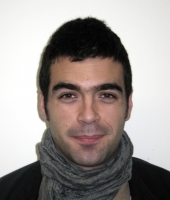 Zoran KORDIC is programme assistant in the United Nations Development Programme (UNDP) in Croatia. He obtained a Diploma in Electrical Engineering from University of Zagreb. After the completion of his studies, he had a student internship with Energy Cities, EU association that support local authorities in energy transition. Since 2012 he has been engaged with UNDP Croatia as project manager on projects related to community energy and citizen participation. He was supporting coordination activities in the process of implementation Low emission development strategy (LEDS) for Croatia in which more than 200 people were involved. He has practical experiences in promoting and stimulating citizen participation in renewable energy projects and urban planning processes through EU funded projects. He is co-founder of Green Energy Cooperative. Mr Kordic is going to present a toolkit called WE Engage, designed to help all stakeholders build, implement and deliver effective and meaningful social engagement strategies in relation to onshore wind farms. The toolkit also relies on input from users by building a bank of case studies from across Europe, showing good practice and learning points from real life experience. This tool was developed within the framework of the WISE Power project, a EU funded project about the social acceptance of wind energy. The expected results is the improvement of local engagement and support for wind turbines while enhancing local community participation in the planning and implementation of wind energy projects.
Zoran KORDIC is programme assistant in the United Nations Development Programme (UNDP) in Croatia. He obtained a Diploma in Electrical Engineering from University of Zagreb. After the completion of his studies, he had a student internship with Energy Cities, EU association that support local authorities in energy transition. Since 2012 he has been engaged with UNDP Croatia as project manager on projects related to community energy and citizen participation. He was supporting coordination activities in the process of implementation Low emission development strategy (LEDS) for Croatia in which more than 200 people were involved. He has practical experiences in promoting and stimulating citizen participation in renewable energy projects and urban planning processes through EU funded projects. He is co-founder of Green Energy Cooperative. Mr Kordic is going to present a toolkit called WE Engage, designed to help all stakeholders build, implement and deliver effective and meaningful social engagement strategies in relation to onshore wind farms. The toolkit also relies on input from users by building a bank of case studies from across Europe, showing good practice and learning points from real life experience. This tool was developed within the framework of the WISE Power project, a EU funded project about the social acceptance of wind energy. The expected results is the improvement of local engagement and support for wind turbines while enhancing local community participation in the planning and implementation of wind energy projects.
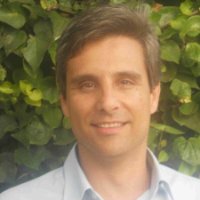 Dr. Juan RUIZ ALZOLA is professor at the University of Las Palmas in Gran Canaria (Spain) and vice President of the Great Canary Telescope (the world's largest single-aperture optical telescope). From 2007 to 2015 he was the director of the Research and Innovation Agency of Canary Islands. Dr Ruiz was director of research and technology in the Canary Islands Technology Institute (ITC) from 2004 to 2011 and visiting associate professor in Harvard University (1999-2003).
Dr. Juan RUIZ ALZOLA is professor at the University of Las Palmas in Gran Canaria (Spain) and vice President of the Great Canary Telescope (the world's largest single-aperture optical telescope). From 2007 to 2015 he was the director of the Research and Innovation Agency of Canary Islands. Dr Ruiz was director of research and technology in the Canary Islands Technology Institute (ITC) from 2004 to 2011 and visiting associate professor in Harvard University (1999-2003).
Dr. Ruiz Alzola coordinated the development of the Research and Innovation Strategy for Smart Specialisation (RIS3) Canary Islands 2014-2020. He will explain the participatory process of the RIS3, with the difficulties to implement it. It was a complex process that finally achieved the full support of Parliament of the Canary Islands, with the unanimous approval of all political parties. In his presentation he will refer to the innovation on services, the international cooperation with less developed countries as source of opportunities for economic specialisation for European regions and how to turn weakness of ultrapheric regions in opportunities using the example of the astrophysical infrastructures in Canary Island, the biodiversity, use as living labs, etc.
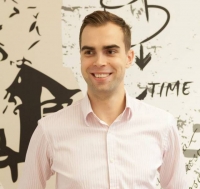 Otso TOLONEN is a part of city of Jyväskylä’s Resource Wisdom Team where he represents the University of Jyväskylä. His main tasks revolve around the internationalization of the regional operating model and the involvement of local stakeholders. He has devised various export and commercialization concepts of the model that are ready for pilot projects in developing regions. Moreover, he has carried out talent searches at Central Finland’s educational and research institutions to find the correct personnel for international model implementation. He has studied environmental management and environmental sciences at the University of Jyväskylä and at Baylor University, Texas, USA. Mr Tolonen is going to present the city of Jyväskylä’s Resource Wisdom program, a scalable operating model for regions to create vitality, business competitiveness, employment and sustainable wellbeing from a circular and carbon neutral economy. The model is implemented in cooperation between local residents, businesses and communities and promotes rapid prototyping and developing new business contexts. The model is internationally scalable and will create and develop regional value chains for sustainable economic performance and well-being in six key areas: Renewable Energy, Sustainable Transport, Waste as a Resource, Healthy Food, Valuable Water, and Sustainable Communities.
Otso TOLONEN is a part of city of Jyväskylä’s Resource Wisdom Team where he represents the University of Jyväskylä. His main tasks revolve around the internationalization of the regional operating model and the involvement of local stakeholders. He has devised various export and commercialization concepts of the model that are ready for pilot projects in developing regions. Moreover, he has carried out talent searches at Central Finland’s educational and research institutions to find the correct personnel for international model implementation. He has studied environmental management and environmental sciences at the University of Jyväskylä and at Baylor University, Texas, USA. Mr Tolonen is going to present the city of Jyväskylä’s Resource Wisdom program, a scalable operating model for regions to create vitality, business competitiveness, employment and sustainable wellbeing from a circular and carbon neutral economy. The model is implemented in cooperation between local residents, businesses and communities and promotes rapid prototyping and developing new business contexts. The model is internationally scalable and will create and develop regional value chains for sustainable economic performance and well-being in six key areas: Renewable Energy, Sustainable Transport, Waste as a Resource, Healthy Food, Valuable Water, and Sustainable Communities.
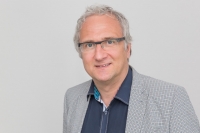 Jürgen SCHULTZE is a senior researcher at Sozialforschungsstelle, co-ordinating the research area “Sustainable Shaping of Organisations and Technologies”. His main fields of work are the role of social innovation for sustainability, eco-innovation, regional empowerment for transformation and innovation dialogues for climatic adaptation and green production. Actual he is working in the 7th framework project CASI “management of sustainable innovations” and the new value of social innovation within the German “Energiewende”.
Jürgen SCHULTZE is a senior researcher at Sozialforschungsstelle, co-ordinating the research area “Sustainable Shaping of Organisations and Technologies”. His main fields of work are the role of social innovation for sustainability, eco-innovation, regional empowerment for transformation and innovation dialogues for climatic adaptation and green production. Actual he is working in the 7th framework project CASI “management of sustainable innovations” and the new value of social innovation within the German “Energiewende”.
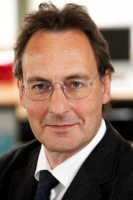 Lars KLÜVER has more than 25 years of practical and theoretical work in technology assessment (TA), foresight and Responsible Research and Innovation (RRI), with special focus on engagement and interactive methodologies. This includes processes, which involve representatives from societal groups, such as experts, stakeholders, politicians, citizens, users, etc. His engagement in participatory technology assessment started in 1986, when Lars Klüver was employed at the DBT as project manager of a consensus conference on “Gene Technology in Industry and Agriculture”, which was the first “Danish model” consensus conference, in which the inclusion of a lay jury was introduced. Since then, Lars Klüver was project manager on numerous participatory and expert-based TA activities. The DBT has a reputation as a front-runner with regards to policy analysis that involves interactivity and participation, and the toolbox of the DBT includes a very wide array of methods. Since around 2010 Lars has been deeply involved in the aims of developing/adapting the engagement toolbox to RRI, and in general in the conceptual development of RRI as an engaging practice. Lars Klüver has been active in participation research, for example as coordinator of the EUROPTA, CIVISTI, DESSI, PACITA, Engage2020 and CIMULACT projects and he has represented the participatory approach to TA in EU expert groups, as an advisor and in conferences/workshops all over the world. Lars Klüver was the initiator of “World Wide Views” initiative – a global citizen participation method, in which citizen meetings are held on the same day in numerous countries and results are gathered and comparable on a web interface.
Lars KLÜVER has more than 25 years of practical and theoretical work in technology assessment (TA), foresight and Responsible Research and Innovation (RRI), with special focus on engagement and interactive methodologies. This includes processes, which involve representatives from societal groups, such as experts, stakeholders, politicians, citizens, users, etc. His engagement in participatory technology assessment started in 1986, when Lars Klüver was employed at the DBT as project manager of a consensus conference on “Gene Technology in Industry and Agriculture”, which was the first “Danish model” consensus conference, in which the inclusion of a lay jury was introduced. Since then, Lars Klüver was project manager on numerous participatory and expert-based TA activities. The DBT has a reputation as a front-runner with regards to policy analysis that involves interactivity and participation, and the toolbox of the DBT includes a very wide array of methods. Since around 2010 Lars has been deeply involved in the aims of developing/adapting the engagement toolbox to RRI, and in general in the conceptual development of RRI as an engaging practice. Lars Klüver has been active in participation research, for example as coordinator of the EUROPTA, CIVISTI, DESSI, PACITA, Engage2020 and CIMULACT projects and he has represented the participatory approach to TA in EU expert groups, as an advisor and in conferences/workshops all over the world. Lars Klüver was the initiator of “World Wide Views” initiative – a global citizen participation method, in which citizen meetings are held on the same day in numerous countries and results are gathered and comparable on a web interface.
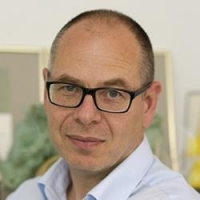 Emil GEORGIEV is founder and Managing Director of DeConi. He has MA in History from Sofia University and MBA from City University, Seattle and has attended Prof. Michael Porter’s seminar Creating Shared Value at Harvard Business School. He has translated into Bulgarian and edited Prof. Philip Kotler’s Chaotics. The Business of Managing and Marketing in The Age of Turbulence and Marketing 3.0. DeConi is a strategic marketing and PR agency established in Sofia in 1995, with offices in Bucharest and Belgrade in the period 2004-2010. The agency has extensive experience in introducing marketing innovations for creating brand value and sustainable social change. Among its clients are big multinational and local companies, governmental, intergovernmental and non-governmental organizations. DeConi is the first certified B Corporation in Central and Eastern Europe. Throughout the years DeConi has built a very strong record in developing and implementing unique corporate social responsibility, public awareness and educational programs. The efforts of the agency in areas of significant social concern like the environment, public health, education and social justice have resulted in sustainable cognitive, attitudinal and behavioral change among millions. With its proprietary innovative marketing tools such as the 3D Edubus, Become Ecohero, the Green Challenge, Eco Labyrinth, the Green School Awards and its professional pro bono program, DeConi is a pioneer of responsible marketing in Eastern Europe.
Emil GEORGIEV is founder and Managing Director of DeConi. He has MA in History from Sofia University and MBA from City University, Seattle and has attended Prof. Michael Porter’s seminar Creating Shared Value at Harvard Business School. He has translated into Bulgarian and edited Prof. Philip Kotler’s Chaotics. The Business of Managing and Marketing in The Age of Turbulence and Marketing 3.0. DeConi is a strategic marketing and PR agency established in Sofia in 1995, with offices in Bucharest and Belgrade in the period 2004-2010. The agency has extensive experience in introducing marketing innovations for creating brand value and sustainable social change. Among its clients are big multinational and local companies, governmental, intergovernmental and non-governmental organizations. DeConi is the first certified B Corporation in Central and Eastern Europe. Throughout the years DeConi has built a very strong record in developing and implementing unique corporate social responsibility, public awareness and educational programs. The efforts of the agency in areas of significant social concern like the environment, public health, education and social justice have resulted in sustainable cognitive, attitudinal and behavioral change among millions. With its proprietary innovative marketing tools such as the 3D Edubus, Become Ecohero, the Green Challenge, Eco Labyrinth, the Green School Awards and its professional pro bono program, DeConi is a pioneer of responsible marketing in Eastern Europe.
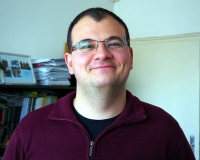 Konstantin IVANOV is a project officer at ARC Fund, Bulgaria. He holds an M.Phil. in Social Anthropology from the University of Cambridge (UK) and has an interest in the field of sustainability and responsible governance. His current work focuses on the interaction of policy, sustainable innovation, effective engagement and societal responses to living a sustainable life. He is also interested in the socio-cultural dimensions of sustainable development, the local and global understandings of the concept and lived practices around the world.
Konstantin IVANOV is a project officer at ARC Fund, Bulgaria. He holds an M.Phil. in Social Anthropology from the University of Cambridge (UK) and has an interest in the field of sustainability and responsible governance. His current work focuses on the interaction of policy, sustainable innovation, effective engagement and societal responses to living a sustainable life. He is also interested in the socio-cultural dimensions of sustainable development, the local and global understandings of the concept and lived practices around the world.
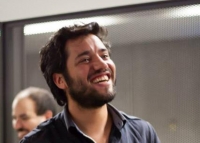 Nelson MATOS is a spatial and environmental planner, with additional training in geographic information systems, territorial risks, forest ecology and sustainable forest management planning. Formerly projects coordinator at Bussaco National Forest, he is currently a research fellow at the University of Aveiro, developing work in the area of strategic environmental and spatial planning.
Nelson MATOS is a spatial and environmental planner, with additional training in geographic information systems, territorial risks, forest ecology and sustainable forest management planning. Formerly projects coordinator at Bussaco National Forest, he is currently a research fellow at the University of Aveiro, developing work in the area of strategic environmental and spatial planning.
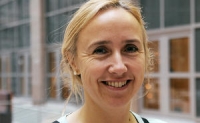 Ellen-Marie FORSBER is Researcher Professor with a PhD in practical ethics/philosophy. She is the Head of Research of the Work Research Institute at Oslo and Akershus University College (HiOA) and leads the HiOA Research Group on Responsible Innovation. Forsberg currently coordinates the Horizon 2020 SWAFS project RRI-Practice, on Responsible Research and Innovation (RRI), and the Norwegian funded Assisted Living project, on RRI in welfare technology for elderly with mild cognitive impairment. She is also the Principal Investigator for HiOA in the Horizon 2020 project PRINTEGER (Promoting Integrity as an Integral Dimension of Excellence in Research). From 2012-2014 she coordinated the EC FP7 Science in Society project EST-Frame, on integrated assessment of emerging science and technologies (www.estframe.net).
Ellen-Marie FORSBER is Researcher Professor with a PhD in practical ethics/philosophy. She is the Head of Research of the Work Research Institute at Oslo and Akershus University College (HiOA) and leads the HiOA Research Group on Responsible Innovation. Forsberg currently coordinates the Horizon 2020 SWAFS project RRI-Practice, on Responsible Research and Innovation (RRI), and the Norwegian funded Assisted Living project, on RRI in welfare technology for elderly with mild cognitive impairment. She is also the Principal Investigator for HiOA in the Horizon 2020 project PRINTEGER (Promoting Integrity as an Integral Dimension of Excellence in Research). From 2012-2014 she coordinated the EC FP7 Science in Society project EST-Frame, on integrated assessment of emerging science and technologies (www.estframe.net).
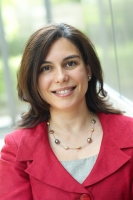 Josefina ENFEDAQUE works as a senior policy officer for the Research and Innovation DG at the European Commission. She is in charge of nature-based solutions public engagement and outreach at the Sustainable Management of Natural Resources unit. Josefina also oversees the development of the stakeholders' platform for nature-based solutions and other strategic communications aspects, notably for the R&I policies related to "Innovating Cities with Nature and Culture". Molecular microbiologist by training, teacher, researcher and communicator, Josefina started her career in the 80s as a socio-cultural coordinator at a Youth and Culture City Department in the Metropolitan Area of Barcelona, has worked in the media production industry, and pursued a 10-year scientific research career in structural biology in academia in different European countries, before becoming international scientific relations manager at the Spanish pharmaceutical company Almirall. She joined the Commission in 2002, where she has managed projects and programmes in biomedical and environmental research, strategic communications and R&I policies (European Research Area).
Josefina ENFEDAQUE works as a senior policy officer for the Research and Innovation DG at the European Commission. She is in charge of nature-based solutions public engagement and outreach at the Sustainable Management of Natural Resources unit. Josefina also oversees the development of the stakeholders' platform for nature-based solutions and other strategic communications aspects, notably for the R&I policies related to "Innovating Cities with Nature and Culture". Molecular microbiologist by training, teacher, researcher and communicator, Josefina started her career in the 80s as a socio-cultural coordinator at a Youth and Culture City Department in the Metropolitan Area of Barcelona, has worked in the media production industry, and pursued a 10-year scientific research career in structural biology in academia in different European countries, before becoming international scientific relations manager at the Spanish pharmaceutical company Almirall. She joined the Commission in 2002, where she has managed projects and programmes in biomedical and environmental research, strategic communications and R&I policies (European Research Area).
Chairs
Edward ANDERSSON is an associate and a founding member of the Involve Foundation, a London based charity dedicated to participatory democracy. Edward has worked on public engagement and deliberation projects for clients such as the UK Department for Communities and Local Government, OECD, the Home Office, the Sciencewise Programme, National School for Government and the European Commission. He also helped to set up participationcompass.org - one of Europe's most comprehensive public engagement sites and is a Professional Facilitator (Certified by the International Association of Facilitators).
Dr. Saule MAČIUKAITĖ-ŽVINIENĖ is a policy expert and researcher, has a doctoral degree of social sciences and is an active member of academia and society. She is a policy adviser on science, innovation and education sectors, a senior researcher and the European Commission expert. She is an author of number of scientific publications in peer-reviewed journals and studies on policy evaluation, deliberative democracy, research and innovation policy and governance, a co-author of national reports to the EC and the UN on R&I and higher education. She has participated in numerous Framework projects,activities of the European University Association and the European Commission.
Markku MATTILA, DScTech, Professor, is Research Director at University of Helsinki, Network for Higher Education and Innovation Research-HEGOM from 2012. He was appointed President of the Academy of Finland 2007 - 2012. From 2000 to 2007 he served as the Director of the University Division at the Ministry of Education. At Tampere University of Technology (TUT), he worked as Professor of Safety Engineering from 1982 to 2000. He was a member of the National Research and Innovation Council chaired by Prime Minister from 2007 to 2012.
Dr. Kaisa MATSCHOSS works as a postdoctoral researcher at the Consumer Society Research Centre at the University of Helsinki. Her particular research focus relates to energy and environmental issues. Her research interests lie in the fields of public engagement, sustainable consumption and energy systems. Previously, she has explored emerging customer needs for smart grid applications, customer interest in smart energy efficiency services and energy efficiency retrofits in existing building stock. She currently studies smart energy transition, the role of intermediary organisations in energy transition and public and stakeholder engagement in sustainability.
Dr. Victor van RIJ is a policy advisor for educational and science policy and an expert in the field of foresight and horizon scanning and identification of early warning signals for many policy areas. Recently working at the University of Amsterdam and occasionally working for a variety of institutions such as the Rathenau Institute, STT (Netherlands Foundation for Technology Futures), UNESCO Institute for Information Technologies in Education, as well as for the CULT committee of the European Parliament. As senior foresight advisor of the unit of Foresight and Horizon scanning of the Ministry of Education, Culture and Science in the Netherlands, and in his function as assistant of the Science foresight coordinator from the Royal Academy of Science and Arts of the Netherlands, he has been involved in many national and European foresight activities. As scientific staff members of the Netherlands Council for Science and Technology he was involved in the conceptualisation of HL science policy advices to the Netherlands government. Dr. van Rij was the Netherlands coordinator of the ERANet Forsociety and is member of the national network of future experts (NTV) within the Netherlands. He has been involved in many national and international foresight projects as consultant and contractor and was member of the Science in Society Advisory group of the EC. He has been involved in the Dutch national Horizon scan and led a pilot project joining the Horizonscans of the UK, Denmark and the Netherlands. Before his activities for the Ministry he assisted the national coordinator for Science and Technology Foresight of the Royal Academy of Sciences of the Netherlands. He started his career as policy advisor on research and educational matters at the University of Amsterdam where he also completed his study as biologist. Further info on: http://nl.linkedin.com/pub/victor-van-rij/6/74a/8a8
Fabio FEUDO, is the executive director of LSC. He is journalist and social researcher in public policies. He has a significant experience in public relations management, project design and scientific communication. He has been working in several research projects devoted to the relationship between research and innovation and society. Recently he also focused his research interests on the topic of Responsible Research and Innovation (RRI). He has been involved as evaluator for the European research projects funded under FP7 and H2020. During the FP7 he has been member of the Italian National Committee of Science in Society Programme.
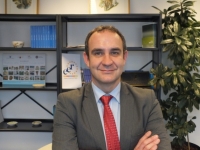 Esteban PELAYO is the Director (CEO) of the European Association of Development Agencies (EURADA). He started his professional career in the European Innovation Relay Center Network helping companies to establish transnational technology transfer agreements (IPR licensing) in the University of Alicante (1996-2000) and in the Regional Development Agency of Murcia (200-2004). He coordinated the network of technology centers of the Regional Development Agency (2004-2011) and he worked in the EU office of the Region of Murcia in Brussels (2011-2015). Esteban graduated as agriculture engineer, holds a postgraduate degree in innovation management and is a certified expert on intellectual property rights as Spanish patent and trademark attorney (2008). Esteban Pelayo is promoting the Citizenergy platform (https://citizenergy.eu/) supported by Intelligent Energy Europe (CIP) programme of the European Union. Using this platform, common citizens could make cross-border investments on projects for renewable energies and energy efficiency promoted by crowdfunding platforms and energy cooperatives. He also has experience in public engagement for social innovation. He has participated as expert on public social innovation in the BENISI project (www.benisi.eu) financed by the FP7 of the European Commission to support the scaleup of social initiatives. He is currently contributing to the SOCIAL SEEDS project (http://www.interregeurope.eu/socialseeds), financed by the Interreg Europe programme to exploiting potentials of social enterprises and entrepreneurs through an standardized European evaluation and development system.
Esteban PELAYO is the Director (CEO) of the European Association of Development Agencies (EURADA). He started his professional career in the European Innovation Relay Center Network helping companies to establish transnational technology transfer agreements (IPR licensing) in the University of Alicante (1996-2000) and in the Regional Development Agency of Murcia (200-2004). He coordinated the network of technology centers of the Regional Development Agency (2004-2011) and he worked in the EU office of the Region of Murcia in Brussels (2011-2015). Esteban graduated as agriculture engineer, holds a postgraduate degree in innovation management and is a certified expert on intellectual property rights as Spanish patent and trademark attorney (2008). Esteban Pelayo is promoting the Citizenergy platform (https://citizenergy.eu/) supported by Intelligent Energy Europe (CIP) programme of the European Union. Using this platform, common citizens could make cross-border investments on projects for renewable energies and energy efficiency promoted by crowdfunding platforms and energy cooperatives. He also has experience in public engagement for social innovation. He has participated as expert on public social innovation in the BENISI project (www.benisi.eu) financed by the FP7 of the European Commission to support the scaleup of social initiatives. He is currently contributing to the SOCIAL SEEDS project (http://www.interregeurope.eu/socialseeds), financed by the Interreg Europe programme to exploiting potentials of social enterprises and entrepreneurs through an standardized European evaluation and development system.
 Ilse MARSCHALEK is a sociologist with several years of experience in international studies in FP 5th, 6th and 7th of the EC. Research interests are inter- and transdisciplinary collaboration, participation and involvement of non-scientific persons into research processes and participatory evaluation designs. At ZSI she is project coordinator at the technology and knowledge department, carrying out a range of projects at the interface between technological and societal innovations. Recently she was the coordinator of the NanOpinion project (www.nanopinion.eu) a multichannel communication and dialogue project which aimed at discussing and assessing ethical and societal aspects of nanotechnologies, involving different stakeholder groups and the hard to reach public. Currently, she is engaged in the RRI tools (www.rri-tools.eu) project elaborating a self reflection tool for active reflection processes on Responsible Research and Innovation practices.
Ilse MARSCHALEK is a sociologist with several years of experience in international studies in FP 5th, 6th and 7th of the EC. Research interests are inter- and transdisciplinary collaboration, participation and involvement of non-scientific persons into research processes and participatory evaluation designs. At ZSI she is project coordinator at the technology and knowledge department, carrying out a range of projects at the interface between technological and societal innovations. Recently she was the coordinator of the NanOpinion project (www.nanopinion.eu) a multichannel communication and dialogue project which aimed at discussing and assessing ethical and societal aspects of nanotechnologies, involving different stakeholder groups and the hard to reach public. Currently, she is engaged in the RRI tools (www.rri-tools.eu) project elaborating a self reflection tool for active reflection processes on Responsible Research and Innovation practices.
 Maria SCHRAMMEL studies Social and Cultural Anthropology at the University of Vienna. Her research interests include responsible research and innovation (RRI), public engagement in research and innovation, gender studies and migration and integration. Due to her educational background and her experience in actual and former projects she specialised on interdisciplinary and transdisciplinary as well as qualitative social science research methods.
Maria SCHRAMMEL studies Social and Cultural Anthropology at the University of Vienna. Her research interests include responsible research and innovation (RRI), public engagement in research and innovation, gender studies and migration and integration. Due to her educational background and her experience in actual and former projects she specialised on interdisciplinary and transdisciplinary as well as qualitative social science research methods.
 Claire NAUWELAERS is an independent Policy Analyst and Governmental Adviser, specialised in research and innovation policy, working in an international environment. She has 30 years of experience in this field and a wide network of contacts with experts, academics and policy-makers. Until 2011 she was working on innovation as a policy analyst in the Regional Development Policy Division at OECD. Previously, she was Research Director at UNU-MERIT, the University of Maastricht and United Nations University, in charge of the research team: “Governance of Science, Technology and Innovation». She started her career as researcher within two academic teams (the Interdisciplinary Centre in Regional Development, and the Interdisciplinary Centre Law-Economics) at the University of Louvain in Belgium, where she was in charge of research projects dealing with economic development and innovation. Her main areas of research and expertise revolve around the analysis and policy advice about the functioning of research and innovation systems, notably at the regional level. She is working on policy development, analysis and evaluation in the areas of Research, Technological Development and Innovation in response to needs from the European Commission, national and regional authorities. She is currently one of the leading experts in Europe on Smart Specialisation Strategies. She is member of Scientific Steering Committees of several Research Networks, part of policy review teams, and is regularly invited as expert in High-Level Expert groups for the European Commission or Member States. She has published numerous books and articles on policy aspects of research, technology and innovation.
Claire NAUWELAERS is an independent Policy Analyst and Governmental Adviser, specialised in research and innovation policy, working in an international environment. She has 30 years of experience in this field and a wide network of contacts with experts, academics and policy-makers. Until 2011 she was working on innovation as a policy analyst in the Regional Development Policy Division at OECD. Previously, she was Research Director at UNU-MERIT, the University of Maastricht and United Nations University, in charge of the research team: “Governance of Science, Technology and Innovation». She started her career as researcher within two academic teams (the Interdisciplinary Centre in Regional Development, and the Interdisciplinary Centre Law-Economics) at the University of Louvain in Belgium, where she was in charge of research projects dealing with economic development and innovation. Her main areas of research and expertise revolve around the analysis and policy advice about the functioning of research and innovation systems, notably at the regional level. She is working on policy development, analysis and evaluation in the areas of Research, Technological Development and Innovation in response to needs from the European Commission, national and regional authorities. She is currently one of the leading experts in Europe on Smart Specialisation Strategies. She is member of Scientific Steering Committees of several Research Networks, part of policy review teams, and is regularly invited as expert in High-Level Expert groups for the European Commission or Member States. She has published numerous books and articles on policy aspects of research, technology and innovation.
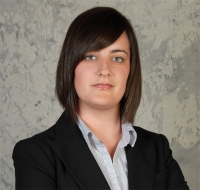 Angela FRIGO has been working in the EU field dealing with food, agriculture and social affairs sectors since 2010. Angela Frigo currently works as EU Liaison Officer for Fondazione Banco Alimentare Onlus, a non-profit organization committed to fight against food waste and to feed the most deprived in Italy. Her duties include, but are not limited to, advising on the development of European legislation and policies on food, environmental and social affairs, liaising with the European institutions and stakeholders of the food supply chain, collaborating with the European Federation of Food Banks, and conducting extensive research and writing reports on topics of interest. Prior to this, in 2011 Angela Frigo was awarded with the Schuman Scholarship for a traineeship at the European Parliamentary Research Service where she followed the activity of the Agricultural and Rural Development Committee and in 2010 she completed a traineeship in the staff of a MEP in Brussels. Angela Frigo holds an Executive Master in European Union Studies from the Institut d’Etudes Européennes – Université Libre de Bruxelles with a thesis on “Fostering food donation in the EU: from the ‘waste hierarchy’ to the ‘food use hierarchy’”. She also holds a Bachelor of Arts and a Master’s Degree in Comparative Languages and Literatures at Università di Verona, Italy.
Angela FRIGO has been working in the EU field dealing with food, agriculture and social affairs sectors since 2010. Angela Frigo currently works as EU Liaison Officer for Fondazione Banco Alimentare Onlus, a non-profit organization committed to fight against food waste and to feed the most deprived in Italy. Her duties include, but are not limited to, advising on the development of European legislation and policies on food, environmental and social affairs, liaising with the European institutions and stakeholders of the food supply chain, collaborating with the European Federation of Food Banks, and conducting extensive research and writing reports on topics of interest. Prior to this, in 2011 Angela Frigo was awarded with the Schuman Scholarship for a traineeship at the European Parliamentary Research Service where she followed the activity of the Agricultural and Rural Development Committee and in 2010 she completed a traineeship in the staff of a MEP in Brussels. Angela Frigo holds an Executive Master in European Union Studies from the Institut d’Etudes Européennes – Université Libre de Bruxelles with a thesis on “Fostering food donation in the EU: from the ‘waste hierarchy’ to the ‘food use hierarchy’”. She also holds a Bachelor of Arts and a Master’s Degree in Comparative Languages and Literatures at Università di Verona, Italy.
Members of the Conference Organizing Committee
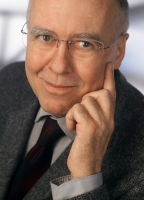 Univ. Prof. Dr. Josef HOCHGERNER was Founder and Scientific Director (1990-2014), now Senior Strategy Adviser of the Centre for Social Innovation (ZSI), Vienna: www.zsi.at. Initiator (2011) and Chairman of the European School of Social Innovation (ESSI). Professor (sociology), currently teaching at University of Vienna and Danube University (AT). Professional experience in research institutions, social partners‘ organisations, Austrian and European RTDI advisory boards and funding agencies, lecturing in adult education and at various Austrian universities and abroad (Germany, Greece, Russia, UK). Participation in EU Framework Programmes since 1991. Among other professional functions, 2001-05 President of the Austrian Sociological Association. Since 2004 member of the Jury awarding ‘SozialMarie’, the annual Austrian Social Innovation Prize (also open to Czech Republic, Hungary, Slovakia, Slovenia and Croatia). Scientific Head of the academic study programme MA in Social Innovation (Danube University Krems, AT), launched 2013: www.donau-uni.ac.at/masi
Univ. Prof. Dr. Josef HOCHGERNER was Founder and Scientific Director (1990-2014), now Senior Strategy Adviser of the Centre for Social Innovation (ZSI), Vienna: www.zsi.at. Initiator (2011) and Chairman of the European School of Social Innovation (ESSI). Professor (sociology), currently teaching at University of Vienna and Danube University (AT). Professional experience in research institutions, social partners‘ organisations, Austrian and European RTDI advisory boards and funding agencies, lecturing in adult education and at various Austrian universities and abroad (Germany, Greece, Russia, UK). Participation in EU Framework Programmes since 1991. Among other professional functions, 2001-05 President of the Austrian Sociological Association. Since 2004 member of the Jury awarding ‘SozialMarie’, the annual Austrian Social Innovation Prize (also open to Czech Republic, Hungary, Slovakia, Slovenia and Croatia). Scientific Head of the academic study programme MA in Social Innovation (Danube University Krems, AT), launched 2013: www.donau-uni.ac.at/masi
 Petra FAGERHOLM is Head of stakeholder relations and outreach in the Communications Programme at the European Environment Agency (EEA) since 2015. From 2007 until 2014 she coordinated strategic activities on sustainable development and corporate affairs in the Executive Director’s Office. She has contributed to several projects and strategic communications on sustainable development, international relations, sustainable business models, consumer behaviour, health and well-being and change management since joining the EEA in 2004. She has in-depth experience in European Union research policies given her service as scientific officer in Neurosciences at the European Commission’s Research Directorate. Prior to this Petra worked as policy advisor at the European Parliament involved in foreign affairs and EU enlargement processes. Petra holds a Diploma in Advanced Studies (D.E.A) in Neurosciences from Louis Pasteur University, France and an MSc in Biosciences from Helsinki University, Finland. She is co-author of articles on the visual system and contrast sensibility which was the focus of her research.
Petra FAGERHOLM is Head of stakeholder relations and outreach in the Communications Programme at the European Environment Agency (EEA) since 2015. From 2007 until 2014 she coordinated strategic activities on sustainable development and corporate affairs in the Executive Director’s Office. She has contributed to several projects and strategic communications on sustainable development, international relations, sustainable business models, consumer behaviour, health and well-being and change management since joining the EEA in 2004. She has in-depth experience in European Union research policies given her service as scientific officer in Neurosciences at the European Commission’s Research Directorate. Prior to this Petra worked as policy advisor at the European Parliament involved in foreign affairs and EU enlargement processes. Petra holds a Diploma in Advanced Studies (D.E.A) in Neurosciences from Louis Pasteur University, France and an MSc in Biosciences from Helsinki University, Finland. She is co-author of articles on the visual system and contrast sensibility which was the focus of her research.
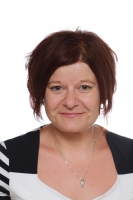 Ms. Lenka HEBÁKOVÁ has been working at the Strategic Studies Department of the Technology Centre of the Czech Academy of Sciences since 2005, where she has gained experience in science, technology and innovation analysis and EU Structural Funds projects management and design. In recent years she focuses on the international research cooperation in the field of technology assessment (TA) and participatory methods development. She has been the Czech project manager of the FP7 PACITA (2011-2015) and the H2020 CIMULACT project (2015-2018) aimed at improving the science-based policy making and citizens involvement in STI policy design in Europe. She passed internships in two TA institutions in Europe: SPIRAL (University of Liège, Belgium in 2015) and POST (Parliamentary Office for Science and Technology, UK in 2016). She has also been active in the field of smart specialisation strategy (S3), EU Structural Funds projects on the Czech research and innnovation infrastructures and analysis in the area of R&D&I. She was the country correspondent for the ERAWATCH Network of Inno-Policy TrendChart projects for the Czech Republic in 2007-2011. She was based in the Czech Liaison Office for Research, Development and Innovation (CZELO) in Brussels for the year of 2009. Ms. Lenka Hebáková gained her MA in International Area Studies, Faculty of Social Sciences of the Charles University in Prague. In 2002 she studied on the Sciences Po University in Paris. In 2003-2005 she was managing projects of the Operational Programme Human Resources Development at the Ministry of Labour and Social Affairs of the CR. She passed an internship in Skelleftea (Sweden) on the active employment policy and lifelong learning.
Ms. Lenka HEBÁKOVÁ has been working at the Strategic Studies Department of the Technology Centre of the Czech Academy of Sciences since 2005, where she has gained experience in science, technology and innovation analysis and EU Structural Funds projects management and design. In recent years she focuses on the international research cooperation in the field of technology assessment (TA) and participatory methods development. She has been the Czech project manager of the FP7 PACITA (2011-2015) and the H2020 CIMULACT project (2015-2018) aimed at improving the science-based policy making and citizens involvement in STI policy design in Europe. She passed internships in two TA institutions in Europe: SPIRAL (University of Liège, Belgium in 2015) and POST (Parliamentary Office for Science and Technology, UK in 2016). She has also been active in the field of smart specialisation strategy (S3), EU Structural Funds projects on the Czech research and innnovation infrastructures and analysis in the area of R&D&I. She was the country correspondent for the ERAWATCH Network of Inno-Policy TrendChart projects for the Czech Republic in 2007-2011. She was based in the Czech Liaison Office for Research, Development and Innovation (CZELO) in Brussels for the year of 2009. Ms. Lenka Hebáková gained her MA in International Area Studies, Faculty of Social Sciences of the Charles University in Prague. In 2002 she studied on the Sciences Po University in Paris. In 2003-2005 she was managing projects of the Operational Programme Human Resources Development at the Ministry of Labour and Social Affairs of the CR. She passed an internship in Skelleftea (Sweden) on the active employment policy and lifelong learning.
 Esteban PELAYO is the Director (CEO) of the European Association of Development Agencies (EURADA). He started his professional career in the European Innovation Relay Center Network helping companies to establish transnational technology transfer agreements (IPR licensing) in the University of Alicante (1996-2000) and in the Regional Development Agency of Murcia (200-2004). He coordinated the network of technology centers of the Regional Development Agency (2004-2011) and he worked in the EU office of the Region of Murcia in Brussels (2011-2015). Esteban graduated as agriculture engineer, holds a postgraduate degree in innovation management and is a certified expert on intellectual property rights as Spanish patent and trademark attorney (2008). Esteban Pelayo is promoting the Citizenergy platform (https://citizenergy.eu/) supported by Intelligent Energy Europe (CIP) programme of the European Union. Using this platform, common citizens could make cross-border investments on projects for renewable energies and energy efficiency promoted by crowdfunding platforms and energy cooperatives. He also has experience in public engagement for social innovation. He has participated as expert on public social innovation in the BENISI project (www.benisi.eu) financed by the FP7 of the European Commission to support the scaleup of social initiatives. He is currently contributing to the SOCIAL SEEDS project (http://www.interregeurope.eu/socialseeds), financed by the Interreg Europe programme to exploiting potentials of social enterprises and entrepreneurs through an standardized European evaluation and development system.
Esteban PELAYO is the Director (CEO) of the European Association of Development Agencies (EURADA). He started his professional career in the European Innovation Relay Center Network helping companies to establish transnational technology transfer agreements (IPR licensing) in the University of Alicante (1996-2000) and in the Regional Development Agency of Murcia (200-2004). He coordinated the network of technology centers of the Regional Development Agency (2004-2011) and he worked in the EU office of the Region of Murcia in Brussels (2011-2015). Esteban graduated as agriculture engineer, holds a postgraduate degree in innovation management and is a certified expert on intellectual property rights as Spanish patent and trademark attorney (2008). Esteban Pelayo is promoting the Citizenergy platform (https://citizenergy.eu/) supported by Intelligent Energy Europe (CIP) programme of the European Union. Using this platform, common citizens could make cross-border investments on projects for renewable energies and energy efficiency promoted by crowdfunding platforms and energy cooperatives. He also has experience in public engagement for social innovation. He has participated as expert on public social innovation in the BENISI project (www.benisi.eu) financed by the FP7 of the European Commission to support the scaleup of social initiatives. He is currently contributing to the SOCIAL SEEDS project (http://www.interregeurope.eu/socialseeds), financed by the Interreg Europe programme to exploiting potentials of social enterprises and entrepreneurs through an standardized European evaluation and development system.
Dr. Victor van RIJ is a policy advisor for educational and science policy and an expert in the field of foresight and horizon scanning and identification of early warning signals for many policy areas. Recently working at the University of Amsterdam and occasionally working for a variety of institutions such as the Rathenau Institute, STT (Netherlands Foundation for Technology Futures), UNESCO Institute for Information Technologies in Education, as well as for the CULT committee of the European Parliament. As senior foresight advisor of the unit of Foresight and Horizon scanning of the Ministry of Education, Culture and Science in the Netherlands, and in his function as assistant of the Science foresight coordinator from the Royal Academy of Science and Arts of the Netherlands, he has been involved in many national and European foresight activities. As scientific staff members of the Netherlands Council for Science and Technology he was involved in the conceptualisation of HL science policy advices to the Netherlands government. Dr. van Rij was the Netherlands coordinator of the ERANet Forsociety and is member of the national network of future experts (NTV) within the Netherlands. He has been involved in many national and international foresight projects as consultant and contractor and was member of the Science in Society Advisory group of the EC. He has been involved in the Dutch national Horizon scan and led a pilot project joining the Horizonscans of the UK, Denmark and the Netherlands. Before his activities for the Ministry he assisted the national coordinator for Science and Technology Foresight of the Royal Academy of Sciences of the Netherlands. He started his career as policy advisor on research and educational matters at the University of Amsterdam where he also completed his study as biologist. Further info on: http://nl.linkedin.com/pub/victor-van-rij/6/74a/8a8


